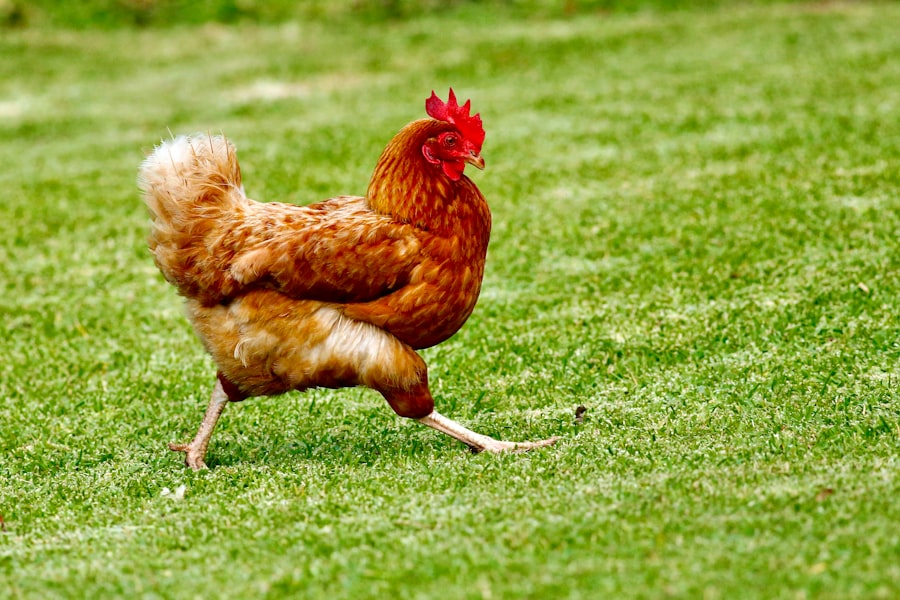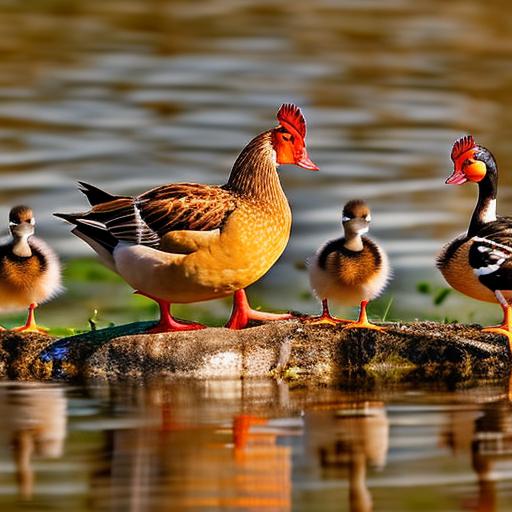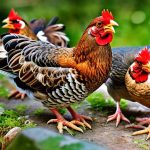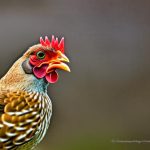Keeping chickens, ducks, and geese together can be a rewarding and beneficial experience for poultry enthusiasts. These birds not only provide fresh eggs but also offer pest control and entertainment. By housing them together, you can create a harmonious and productive environment. In this article, we will explore the benefits of keeping these birds together and provide tips on how to house them, choose the right coop, feed and water them, provide adequate space, maintain a clean environment, address health concerns, and manage the pecking order.
Key Takeaways
- Keeping chickens, ducks, and geese together can provide numerous benefits.
- Proper housing, feeding, and spacing are crucial for maintaining a healthy and safe environment.
- Choosing the right coop and feed/watering system is important for the well-being of the birds.
- Addressing potential health concerns and managing the pecking order are essential for a successful flock.
- Enjoy the rewards of keeping chickens, ducks, and geese together with proper care and attention.
Benefits of Keeping Chickens, Ducks, and Geese Together
One of the main benefits of keeping chickens, ducks, and geese together is increased egg production. Chickens are known for their prolific egg-laying abilities, while ducks and geese also contribute to the egg supply. By having all three types of birds in one space, you can enjoy a variety of eggs with different flavors and sizes.
Another benefit is pest control. Ducks and geese are natural foragers and love to eat insects and pests. By allowing them to roam freely with the chickens, they can help keep the pest population under control. This can be especially beneficial if you have a garden or crops that are prone to insect damage.
Additionally, keeping these birds together can provide entertainment and companionship. Ducks and geese are known for their playful nature, while chickens have their own unique personalities. Watching them interact and socialize can be a source of joy and amusement.
How to House Chickens, Ducks, and Geese Together
When housing chickens, ducks, and geese together, it is important to provide separate areas for each type of bird. This allows them to have their own space while still being able to interact with each other. Separate areas also help prevent any potential conflicts or territorial disputes.
There are different types of housing options available for these birds. One option is to have a large coop with separate sections for each type of bird. This allows them to have their own nesting boxes and roosting areas. Another option is to have separate coops for each type of bird, but with a shared outdoor space where they can interact during the day.
Choosing the Right Chicken Coop
When choosing a coop that will accommodate chickens, ducks, and geese, there are a few things to consider. First, make sure the coop is large enough to comfortably house all three types of birds. It should have enough space for them to move around, roost, and lay eggs.
Ventilation is also important in a chicken coop. Chickens, ducks, and geese produce moisture through their droppings and breath, so proper ventilation helps prevent the buildup of ammonia and keeps the air fresh and healthy.
Insulation is another factor to consider, especially if you live in an area with extreme temperatures. Insulated walls and a well-insulated roof can help keep the birds warm in winter and cool in summer.
Choosing the Right Feed and Watering System
Chickens, ducks, and geese have different dietary needs, so it is important to choose the right feed and watering system for each type of bird. Chickens require a balanced diet that includes grains, protein, vitamins, and minerals. Ducks need a diet that includes waterfowl pellets or a mix of grains and greens. Geese require a diet that includes waterfowl pellets or a mix of grains and grass.
When it comes to watering systems, chickens can drink from traditional waterers or nipple drinkers. Ducks prefer shallow water dishes or pools where they can dip their bills and clean their feathers. Geese also prefer shallow water dishes or pools but may require larger containers due to their size.
Providing Adequate Space for Chickens, Ducks, and Geese

Providing enough space for each bird is crucial for their well-being and overall health. Overcrowding can lead to stress, aggression, and the spread of diseases. As a general guideline, chickens require at least 4 square feet of space per bird in the coop and 10 square feet per bird in the outdoor run. Ducks need at least 10 square feet of space per bird in the coop and 20 square feet per bird in the outdoor run. Geese require at least 20 square feet of space per bird in the coop and 40 square feet per bird in the outdoor run.
Maintaining a Clean and Safe Environment
Keeping the coop and surrounding area clean is essential for the health and well-being of your birds. Regularly remove droppings, replace bedding, and clean waterers and feeders to prevent the buildup of bacteria and parasites. Provide adequate ventilation to reduce moisture and ammonia levels.
It is also important to maintain a safe environment for your birds. Secure the coop with sturdy fencing to protect them from predators. Regularly inspect the coop for any signs of damage or wear and repair or replace as needed. Keep the area around the coop free from clutter and potential hazards.
Addressing Potential Health Concerns
Chickens, ducks, and geese can be susceptible to various health issues, so it is important to be proactive in preventing and treating these concerns. Common health concerns include respiratory infections, parasites, nutritional deficiencies, and injuries.
To prevent respiratory infections, provide good ventilation in the coop and avoid overcrowding. Regularly inspect your birds for signs of parasites such as mites or lice and treat them accordingly. Ensure they have a balanced diet that meets their nutritional needs. Keep an eye out for any injuries or wounds and provide appropriate care.
Managing the Pecking Order
The pecking order is a natural social hierarchy among chickens, ducks, and geese. It determines the order in which birds have access to resources such as food, water, and nesting areas. It is important to manage conflicts between birds to prevent injuries and stress.
To manage the pecking order, provide multiple feeding and watering stations to reduce competition. Ensure there are enough nesting boxes for all the hens to lay their eggs. If necessary, separate birds that are being excessively aggressive or causing harm to others.
Enjoying the Rewards of Keeping Chickens, Ducks, and Geese Together
Keeping chickens, ducks, and geese together can be a rewarding and enjoyable experience. By providing separate areas for each type of bird, choosing the right coop, feed and watering system, providing adequate space, maintaining a clean environment, addressing health concerns, and managing the pecking order, you can create a harmonious and productive environment for your feathered friends. So why not give it a try and enjoy the benefits of keeping these birds together?
If you’re considering keeping chickens, ducks, and geese together, it’s important to understand the dynamics and requirements of each species. In a helpful article by Poultry Wizard, they discuss the benefits and considerations of cohabitating these birds. To further explore the topic, you may want to check out their article on “What is the Incubation Period for Goose Eggs?” This informative piece provides insights into the incubation process of goose eggs and offers valuable tips for successful breeding. To learn more about creating a suitable living environment for your feathered friends, you can also read their articles on “Chicken Coop Trampoline” and “A-Frame Chicken Coop.”
FAQs
What are the benefits of keeping chickens, ducks, and geese together?
Keeping chickens, ducks, and geese together can provide a variety of benefits, including pest control, fertilization of the soil, and a diverse range of eggs and meat.
Is it safe to keep chickens, ducks, and geese together?
Yes, it is generally safe to keep chickens, ducks, and geese together as long as they are provided with adequate space, food, and water. However, it is important to monitor their behavior and health to ensure they are not fighting or spreading diseases.
What kind of housing do chickens, ducks, and geese need?
Chickens, ducks, and geese require different types of housing. Chickens need a coop with nesting boxes and roosting bars, while ducks and geese need access to water for swimming and cleaning. All three species require protection from predators and shelter from extreme weather conditions.
What should I feed my chickens, ducks, and geese?
Chickens, ducks, and geese have different dietary needs. Chickens require a diet high in protein, while ducks and geese need a diet high in fat. All three species can benefit from a diet that includes grains, vegetables, and insects.
What are some potential problems with keeping chickens, ducks, and geese together?
Some potential problems with keeping chickens, ducks, and geese together include fighting, disease transmission, and differences in dietary needs. It is important to monitor their behavior and health to prevent these issues from arising.
Can I keep chickens, ducks, and geese together in a backyard?
Yes, it is possible to keep chickens, ducks, and geese together in a backyard as long as there is enough space and proper housing. However, it is important to check local regulations and obtain any necessary permits before keeping these animals.
Meet Walter, the feathered-friend fanatic of Florida! Nestled in the sunshine state, Walter struts through life with his feathered companions, clucking his way to happiness. With a coop that’s fancier than a five-star hotel, he’s the Don Juan of the chicken world. When he’s not teaching his hens to do the cha-cha, you’ll find him in a heated debate with his prized rooster, Sir Clucks-a-Lot. Walter’s poultry passion is no yolk; he’s the sunny-side-up guy you never knew you needed in your flock of friends!







